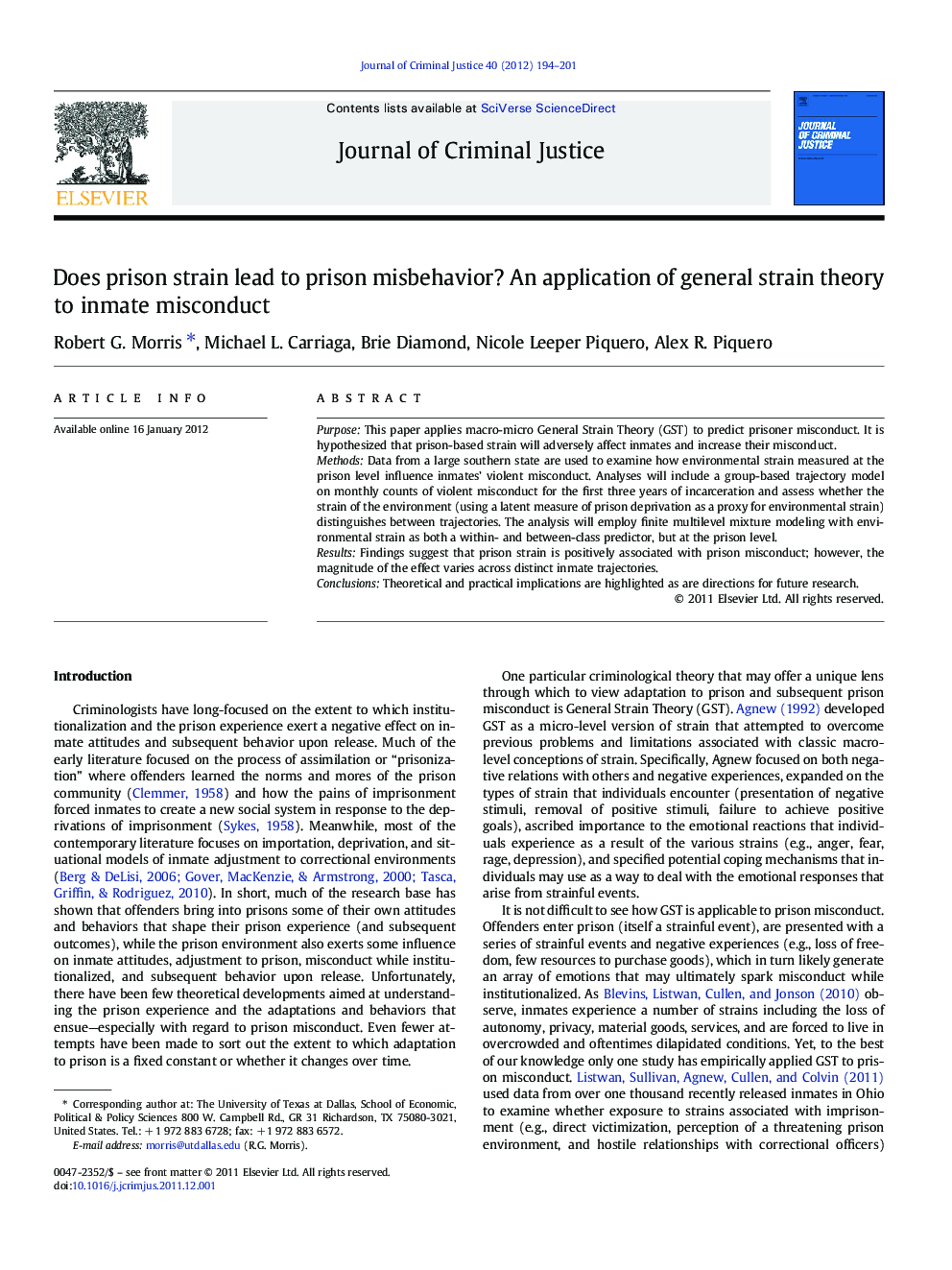| Article ID | Journal | Published Year | Pages | File Type |
|---|---|---|---|---|
| 882867 | Journal of Criminal Justice | 2012 | 8 Pages |
PurposeThis paper applies macro-micro General Strain Theory (GST) to predict prisoner misconduct. It is hypothesized that prison-based strain will adversely affect inmates and increase their misconduct.MethodsData from a large southern state are used to examine how environmental strain measured at the prison level influence inmates’ violent misconduct. Analyses will include a group-based trajectory model on monthly counts of violent misconduct for the first three years of incarceration and assess whether the strain of the environment (using a latent measure of prison deprivation as a proxy for environmental strain) distinguishes between trajectories. The analysis will employ finite multilevel mixture modeling with environmental strain as both a within- and between-class predictor, but at the prison level.ResultsFindings suggest that prison strain is positively associated with prison misconduct; however, the magnitude of the effect varies across distinct inmate trajectories.ConclusionsTheoretical and practical implications are highlighted as are directions for future research.
► The findings lend support to general strain theory. ► Prison unit environmental strains are linked to inmate misconduct. ► The most deviant inmates may be overtly susceptible to environmental strains. ► This is the first study of prison misconduct to utilize trajectory analysis.
